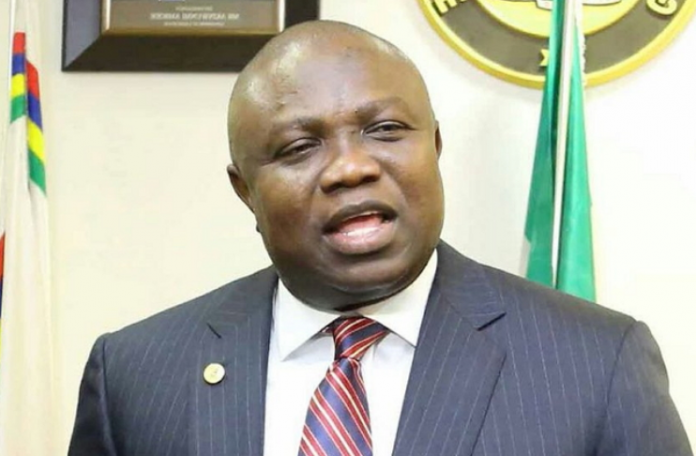The Lagos State Government Tuesday said its internally generated revenue (IGR) for the first quarter of the year 2018 stood at N103.476 billion as against N96.7 billion recorded in the previous year.
The IGR figures, according to a statement, account for 81 percent of the total revenue of N141 billion generated in the quarter.
Segun Banjo, commissioner for economic planning and budget, who disclosed this during the annual ministerial press briefing to mark the third year in office of Governor Ambode’s administration held at the Bagauda Kaltho Press Centre in Alausa, said the records so far show that the performance of the state’s 2018 budget of N1.046 trillion was heading in the right direction.
Giving a breakdown of the figures, the commissioner said the budget performance for the first quarter has a pro-rata size of N261.530 billion and, in absolute terms, it had performed N163.491 billion, compared with N120.206 billion reported for the same period in 2017.

In terms of revenue generation, Banjo said that the sum of N141 billion was generated as total revenue against N124.141 billion achieved in 2017, adding that this year’s first quarter performance was N17.816 billion higher than the previous year’s performance in absolute terms.
The commissioner explained further that the Lagos Internal Revenue Service (LIRS) generated N84.1 billion in the first quarter, which accounted for 81 percent of the total revenue generated, a feat, he attributed to proper planning and research by the government.
“What we have said now is that in the first quarter which we just concluded in 2018, LIRS generated a total of N84 billion compared to the N74 billion that was generated in 2017. Due to the research and the planning done, LIRS has been able to improve their performance and we are very glad about it,” he said.
Banjo, however, noted that the N84 billion generated by LIRS was excluding revenue from land use charge (LUC), noting that it was from the strict application of taxes from pay-as-you-earn (PAYE), withholding taxes, direct assessment, and other taxes.
Besides, he said that federal transfers for the first quarter of 2018 contributed N38.481 billion (87 percent) compared to a performance of N27.364 billion out of which statutory allocation contributed N13.868 billion and N24.4 billion from the VAT for the same period in 2017.
“Under Capital Expenditure, Quarter 1 performance stood at N93 billion (53 percent) as against N46.7 billion (37 percent) as at the same period in 2017. As at the end of Q1 2018, the capital/recurrent ratio closed at 57:43 as against 39:61 recorded at the same period in Y2017.
“This is a pointer to the fact that all efforts geared towards tighter control of overhead are beginning to yield fruits even though more needs to be done in this area,” he said.
He said the state government would do everything within its powers to sustain the budget performance in the second quarter, adding that the ultimate goal was to meet the target of a capital: recurrent expenditure ratio of 67:33 throughout the year.
Responding to questions on the reduction in the rates payable by property owners under the Lagos State Land Use Charge Law, vis-a-vis the 2018 budget and its effects on the plans by the government to deliver all ongoing projects in the State, the Commissioner allayed fears, adding that the present administration had already fashioned out strategies to ensure prompt delivery of critical projects this year.
“Definitely we have made a projection but because this is a very responsive government, we have decided to give rebates and when you give rebates, automatically the revenue will go down, the expectation might not be there in terms of what we intended in the first instance. But we can assure you that whatever we lose from the rebate we would get it somewhere else because we would continue to up our game,” Banjo said.







